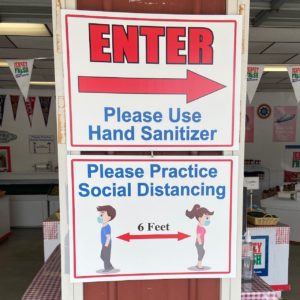Continuing a 50-year tradition, Penn State’s Ag Progress Days, brought to you by their College of Agricultural Sciences, is a one-stop shop this week, August 9-12, 2020, for the latest research, management practices, and regulations in agriculture.
This year, Penn State Extension educators and faculty have come together to provide a FREE virtual learning program filled with the latest in Ag research and best practices. This event is being offered at no charge to participants, but registration is required to receive the link to access a webinar. Even if you missed a day or a session, all registrants will receive access to the webinar recordings.
Online registrants can choose from more than 46 live webinars and get questions answered by the experts. Just check out the the live webinar schedule and register online. [Read more…]
 Agents Michelle Infante-Casella, Meredith Melendez, William Bamka, Stephen Komar and Wesley Kline to educate famers selling directly to the public about changes occurring to the industry as a result of the COVID-19 pandemic. Four sessions in May were presented with the last session being a farmer panel discussion about changes on farms forced due to the pandemic. Farmers included Tracy Duffield – Duffield’s Farm Market, Dave Specca – Specca You-Pick Farm, and Jess Niederer – Chickadee Creek Organic Farm. In May, 145 participants attended this online series, offered on Tuesday Evenings from 7:00-8:00 PM. All sessions were recorded and are available to view online. The topics included the following:
Agents Michelle Infante-Casella, Meredith Melendez, William Bamka, Stephen Komar and Wesley Kline to educate famers selling directly to the public about changes occurring to the industry as a result of the COVID-19 pandemic. Four sessions in May were presented with the last session being a farmer panel discussion about changes on farms forced due to the pandemic. Farmers included Tracy Duffield – Duffield’s Farm Market, Dave Specca – Specca You-Pick Farm, and Jess Niederer – Chickadee Creek Organic Farm. In May, 145 participants attended this online series, offered on Tuesday Evenings from 7:00-8:00 PM. All sessions were recorded and are available to view online. The topics included the following: